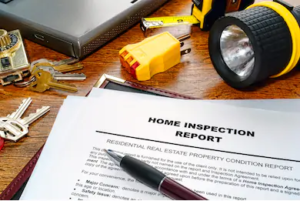
Once you negotiate and settle on a price, the buyer arranges for financing and a home inspection. This section will help you with these important steps.
Negotiating the Deal
Successful real estate negotiation is more than a matter of luck, the gift of gab or charm. The following tips will help you to make a successful deal:
Successful negotiating is tricky, you have to be knowledgeable of what your talking about, while also having to come back with an offer that doesn’t throw off the whole deal. The obvious outcome to a successful negotiation is something in which both parties come to a win-win scenario. Your Delwin Realty Agent can help you stay focused, objective, and not let your emotions rule your decision making.
- Start with a thoroughly researched, fair price.
- Respect the other side’s priorities. For example, a buyer with an urgent move-in date might be willing to pay a higher portion of the transaction costs or forgo some major repairs. Or, they may prefer to push out the closing date, in order to be more confident that there will be no unanticipated additional expenses.
- In any case, be prepared to compromise: “win-win” doesn’t mean both the buyer and the seller will get everything they want. It means both sides will win some and give some.
Seller Financing
Seller or owner financing is a technique in which the seller of a home takes on the role of a lender in a home sale. Find out more:
If a seller helps to finance a real estate transaction, it is called seller financing. Usually sellers do this when a buyer has difficulty qualifying for a conventional loan or meeting the purchase price.
Seller financing differs from a traditional loan because the seller does not give the buyer cash to complete the purchase, as does a lender. Instead, it involves extending a credit against the purchase price of the home.
The necessary paperwork is prepared by the title or escrow company, after the terms are worked out between the buyer and seller. If you are a seller considering this kind of arrangement, it is critical to thoroughly evaluate the credit of the buyer.
 When you’re in the middle of this process It is important to consult with legal counsel and your accountant regarding the potential consequences of this type of arrangement. You can also contact the Internal Revenue Service for a copy of its Publication 537, “Installment Sales.” You can order by calling (800) TAX-FORM or visit the website at www.irs.gov/formspubs.
When you’re in the middle of this process It is important to consult with legal counsel and your accountant regarding the potential consequences of this type of arrangement. You can also contact the Internal Revenue Service for a copy of its Publication 537, “Installment Sales.” You can order by calling (800) TAX-FORM or visit the website at www.irs.gov/formspubs.
Seller financing offers tax breaks for sellers and alternative financing for buyers who can’t qualify for conventional loans. If you are a seller, the risks you face are the same as those facing any other lender. Some of the most frequent questions that get asked are: Is the borrower a good credit risk? Will the property hold enough value over time to allow for the repayment of all loans made against it? All are questions that pop up that you would have to make yourself familiar with.
You should run a full credit check on the borrower, require hazard insurance on the property and include a due-on-sale clause. There also are financing, disclosure and repayment-term requirements that need to be met. Again, it is wise to consult an attorney when considering this type of transaction.
Home Inspection
A home inspection is relatively self explanatory, its a professional, objective visual examination of the physical structure and systems of a home, from the roof to the foundation. The following section provides information and tips about this critical pre-sale step:
section provides information and tips about this critical pre-sale step:
A home inspection is exactly as it sounds, it’s a thorough visual examination of the home and property. Many mortgage companies insist on a home inspection report before agreeing to a mortgage, so a pre-sale inspection enables you to address problems before you even put the house on the market. It also removes any questions about the condition of your home for you and a potential homebuyer, improving the speed, price and the likelihood of a sale.
The inspection process usually takes two to three hours, during which time the house is examined from the ground up. It includes observation and, when appropriate, operation of the plumbing, heating, air conditioning, electrical, and appliance systems, as well as structural components, such as the roof, foundation, basement, exterior and interior walls, chimney, doors and windows.

Some home sellers elect not to correct every defect found in the inspection report. Instead, they acknowledge the defects to buyers and explain that the asking price has been adjusted to reflect the estimated cost of repairs. This tends to shorten negotiation time because buyers have fewer objections.
In addition to facilitating the sale of a home, an inspection helps the homeowner comply with full-disclosure real estate laws, governed by state laws. By focusing on the condition of your property, you are less likely to overlook a defect or material fact for which you could later be held liable.
A thorough home inspection covers more than 1,000 items, everything from the foundation to the roof and takes two to three hours depending on the size of the property. The report should reflect the condition of around 400 items on the property.
